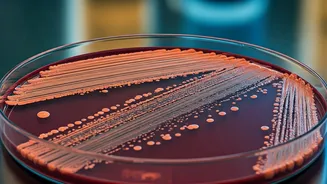Global Resistance Threat
The WHO has issued an alert concerning the escalating incidence of infections that defy conventional treatments. This worldwide challenge compromises the utility
of medications designed to combat these infections. The escalating drug resistance is attributed to a variety of causes, including the overuse and misuse of antibiotics, coupled with inadequacies in infection prevention and control measures. The WHO underscores the necessity for worldwide collaborative endeavors and strategic methods to tackle this pressing global health crisis. This involves bolstering surveillance systems to monitor the emergence and spread of resistant organisms and implementing stringent measures to curtail the misuse of antimicrobials in both human and animal healthcare. Moreover, investments in the development of fresh antimicrobials, as well as diagnostic tools, are crucial. The report also highlights the importance of educational initiatives to raise public awareness regarding responsible antibiotic usage.
Causes Behind Resistance
Several factors contribute to the rise of drug-resistant infections, as pointed out by the WHO. One key reason is the inappropriate use of antibiotics, which promotes the evolution and spread of resistant strains. This includes administering antibiotics when they are not needed, such as for viral infections, or prescribing the incorrect dosage. Additional elements are the inadequate infection prevention practices in hospitals and healthcare settings. These shortcomings lead to the transmission of resistant germs among patients. The lack of updated diagnostic capabilities poses a hurdle in identifying infections swiftly and accurately, resulting in delayed treatment and possible complications. Insufficient investment in discovering innovative drugs further hinders attempts to address this issue. Addressing these causes involves multiple approaches, including promoting responsible use of antibiotics, reinforcing infection control protocols, enhancing diagnostic capabilities, and accelerating investment in research and development.
Impact and Concerns
The consequences of drug-resistant infections are extensive, impacting individuals, healthcare systems, and economies. When infections become resistant to treatment, they become more difficult to cure, which leads to longer hospital stays, increased medical costs, and higher mortality rates. The WHO underscores that drug resistance threatens the progress made in the treatment of infectious diseases, endangering crucial procedures like organ transplants and chemotherapy. The situation is particularly critical in low- and middle-income countries, where access to effective treatments is limited and resources are scarce. The proliferation of resistance strains also contributes to an increase in healthcare expenses. Tackling these issues necessitates concerted efforts at all levels, from individual actions to global collaborations. Without decisive interventions, the progress in battling infectious diseases risks being reversed, leaving communities susceptible to untreatable infections and associated challenges.
Essential Action Steps
Addressing drug-resistant infections requires a multifaceted approach, as the WHO emphasizes. Key steps encompass promoting judicious antibiotic use through education and guidelines for healthcare professionals. Strict adherence to infection prevention and control measures in healthcare facilities is equally important. This includes maintaining hygiene practices, the appropriate use of personal protective equipment, and prompt isolation of infected patients. Boosting diagnostic capabilities allows for the swift and precise detection of infections and guide appropriate treatment strategies. Furthermore, investment in the research and development of novel antibiotics and alternative therapeutic approaches is crucial. Strengthening surveillance systems helps monitor the spread of drug-resistant organisms. International cooperation, through information sharing, resource allocation, and policy harmonization, is indispensable in controlling the global spread of drug resistance. These proactive steps are critical in preserving the effectiveness of existing antimicrobials and safeguarding the health of people worldwide.

















